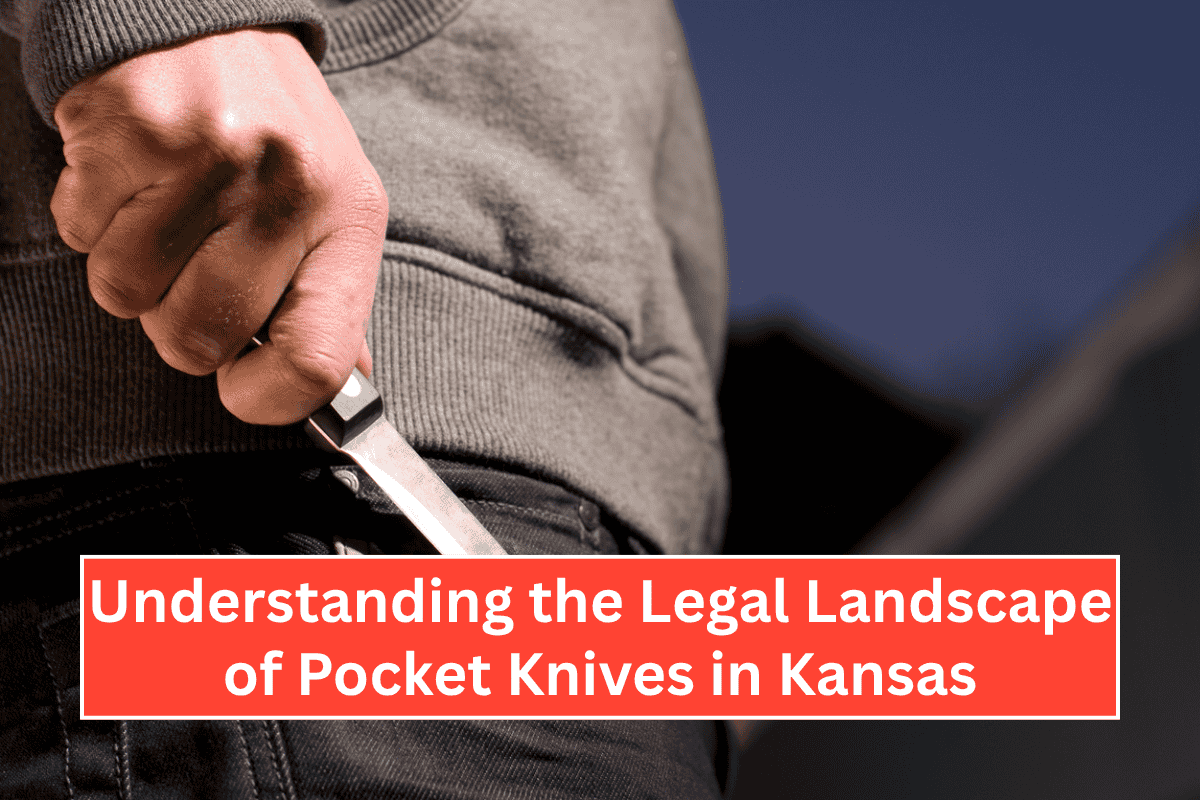Kansas has some of the more relaxed knife laws compared to other states, allowing for a wide variety of knives to be carried openly or concealed. However, as with any legal issue, understanding the specific laws and restrictions is crucial to avoid legal complications.
In this article, we’ll break down the key aspects of knife laws in Kansas, including the types of knives allowed, open and concealed carry laws, restricted locations, and potential consequences for violations.
Types of Knives
Kansas law generally permits the ownership and carrying of a wide range of knives, but there are some distinctions between what is legal and illegal based on how the knife is used or carried.
Legal Knives
The following types of knives are legal to own and carry in Kansas, whether openly or concealed:
- Folding Knives/Pocket Knives: These are common everyday carry (EDC) knives that fold into the handle, making them compact and portable.
- Hunting Knives: These knives, often designed for outdoor use, are legal in Kansas.
- Utility Knives: Versatile knives designed for general use, including for work or cutting tasks.
- Multi-Tool Knives: These are tools that combine multiple functions, such as pliers, screwdrivers, and knives, often used for outdoor activities or as an all-in-one tool.
- Box Cutters: These knives, typically used for cutting packaging or other light tasks, are also legal to carry.
Illegal Knives
Kansas law does not specifically list types of knives that are outright illegal. Instead, the legality of a knife often depends on how it is used. For example, a knife carried with the intent to harm or used as a weapon in an unlawful way would be considered illegal, regardless of its type.
Carrying Laws
Kansas is known for having relatively lenient laws when it comes to carrying knives. However, there are still specific rules that individuals should be aware of, especially regarding where and how knives can be carried.
Open Carry
Kansas law allows the open carry of any type of knife without significant restrictions. This includes knives of various sizes and types, such as folding knives, hunting knives, and utility knives. As long as you are not using the knife in an unlawful manner or in prohibited areas, you can generally carry it openly without issue.
Concealed Carry
Concealed carry of knives is also allowed in Kansas, with fewer restrictions compared to other states. This includes knives with blades longer than 4 inches, which in many states would be prohibited for concealed carry. However, carrying a knife with the intent to use it unlawfully against another person is still illegal.
It’s important to remember that even if concealed carry is allowed, the manner in which the knife is carried or used is what matters in ensuring its legality.
Restricted Locations
While Kansas generally allows for the open and concealed carry of knives, there are certain locations where carrying knives is prohibited. These include:
- Schools and School Properties: Knives are prohibited on K-12 school grounds or in school buildings.
- Government Buildings: Carrying knives into government buildings is restricted, as these locations often have specific security measures in place.
- Jails and Prisons: Knives are prohibited within correctional facilities due to the potential for misuse.
- Private Properties: If private properties have signage indicating that weapons (including knives) are not allowed, then carrying a knife in these locations would be unlawful.
Law Enforcement or Military Exceptions
Certain individuals, such as law enforcement officers or members of the military, are exempt from many of the restrictions on carrying knives. They are permitted to carry knives both as part of their official duties and, in many cases, as private citizens.
This exemption applies to knives carried in the course of their work and often extends to private carry as well.
Consequences of Violating Knife Laws
Violating Kansas knife laws can lead to various consequences, depending on the specifics of the violation. Possible penalties include:
- Fines: If you are found violating knife laws, you may be subject to fines.
- Imprisonment: More severe violations can result in jail time, especially if the knife is used in a crime or carried with malicious intent.
- Confiscation of the Knife: The knife in question may be confiscated by law enforcement if it is found to be carried illegally.
- Severe Penalties: If the knife is used in the commission of a crime or intended to be used unlawfully against someone, more severe penalties may be applied.
Kansas offers relatively relaxed knife laws, but it’s important to understand the restrictions and rules that apply, especially regarding carrying knives in certain locations and with the right intent.
Whether you’re carrying a pocket knife, hunting knife, or multi-tool, always ensure that you are not violating laws in restricted areas and that your intent is lawful.
Staying informed about local ordinances and state regulations can help you avoid legal issues and ensure you remain within the bounds of the law.












